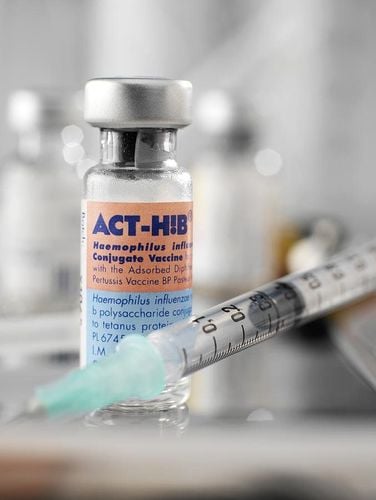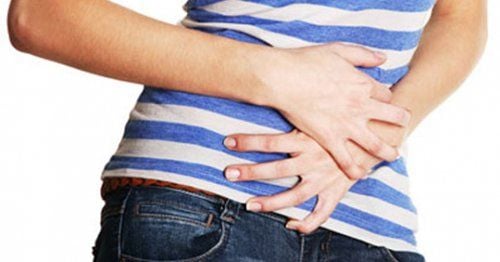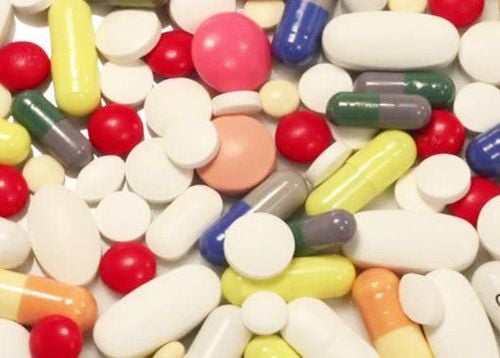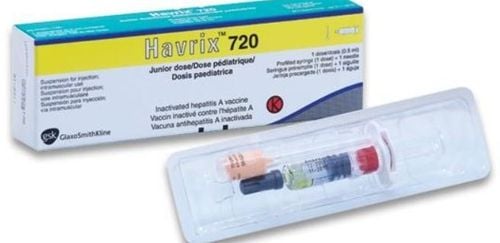This is an automatically translated article.
The article was professionally consulted by Doctor Le Thu Phuong - Department of Pediatrics - Neonatology, Vinmec Ha Long International General Hospital.Acute diarrhea usually has quite massive symptoms, especially in the first 2-3 days. Children with acute diarrhea are not uncommon, with simple causes but also quite dangerous causes. According to research, acute diarrhea is the second leading cause of death in children after acute respiratory infections.
Let's find out the causes and manifestations with the advice of Pediatrics Doctor Le Thu Phuong - Vinmec Ha Long Hospital to have a timely treatment!
1. Causes and signs of acute diarrhea in children
1.1. Causes Acute diarrhea in children can be caused by viruses, bacteria, and parasites. In particular, the main cause of severe, life-threatening diarrhea in young children and often causing epidemics is Rotavirus. In addition, mothers need to pay attention to some factors that increase the risk of diarrhea to prevent:Common age: Children from 6 to 11 months old (starting to eat solid foods). The baby is malnourished. Immunodeficiency: After measles or HIV infection. Vietnam has a tropical monsoon climate, so children are susceptible to diarrhea caused by bacteria, especially rotavirus, or raging in the dry and cold season. Bad habits: Bottle feeding, improper weaning, contaminated water, not washing hands when handling feces, when preparing food, unhygienic handling of feces.
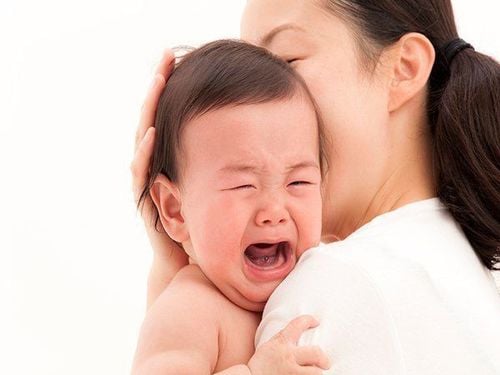
1.2. Signs of acute diarrhea Children under 1 year old, especially under 6 months, may have frequent bowel movements a day, an average of 3-10 times/day or more. Your baby's poop may look thick, liquid, yellow, green, or brown in color.
Breastfed babies may produce more frequent and watery stools than formula-fed babies. Children 1 year of age and older, usually have about 1-2 bowel movements a day.
The stools in acute diarrhea are often loose, watery, and have a fishy odor. Besides, because this is an intestinal disease, the child will have other symptoms, such as fatigue, fussiness, fever, nausea and vomiting, abdominal pain,...
Usually, in children under 1 At age, diarrhea is defined as having twice as many bowel movements as normal. For children over 1 year old, it is when the child has watery stools 3 or more times a day.
Trắc nghiệm: Nhận biết sớm dấu hiệu chậm phát triển thể chất và trí tuệ ở trẻ
Nếu 6 tuổi không biết đếm số, 7 tuổi vẫn chưa phân biệt được giữa thực tế và tưởng tượng thì có thể bé chậm phát triển thể chất và trí tuệ hơn so với bạn bè cùng lứa. Bạn đã nhận biết được các dấu hiệu bất thường sớm này chưa? Cùng làm nhanh bài trắc nghiệm sau để trang bị thêm kiến thức cho mình nhé!
The following content is prepared under supervision of Thạc sĩ, Bác sĩ y khoa, Ma Văn Thấm , Nhi , Phòng khám Đa khoa Quốc tế Vinmec Dương Đông(Phú Quốc)
2. What should parents do when their child has acute diarrhea?
2.1. Children with acute diarrhea should take what medicine? If the child has a fever of 38.3°C - 38.5°C or higher (without a history of febrile convulsions), parents can give the child an antipyretic and pain reliever such as Acetaminophen (you should carefully review the ingredients of the brand name under the name). medicine) 10-15mg/kg/time, up to 4 times a day.2.2. What should children with acute diarrhea eat? At first, children may refuse foods, especially solid foods. This is normal and we only need to support the child to drink water and milk. We can also prepare liquid foods that are easier to eat for babies.
For the phenomenon of excessive vomiting, parents should encourage children to eat and drink slowly, in less quantity, more often, to minimize the possibility of further vomiting in children. When the child has repeated watery diarrhea and vomiting, the child will be at risk of dehydration, hypoglycemia, electrolyte disturbance, making the child's condition worse. We can give the child small sips of water, milk or spoon, pump into the mouth slowly, often for the child. Our goal is to be able to effectively "rehydrate" the child, to avoid these complications. In infants under one year of age who are still breastfed or formula-fed, we should still give them breast- or formula-feeding to rehydrate, electrolytes and energy through this important food.
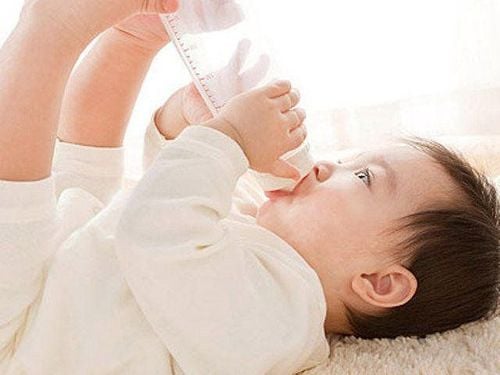
Do not give children pure fruit juice because it will make the child's diarrhea worse, because juice contains a lot of sugar. If you still want to give it to your child, dilute the cooked water with one part juice. Soft drinks as well as "electrolyte" drinks sold in the market are also a bad choice because they will make the child more uncomfortable in the intestines and have more bowel movements during the illness.
3. When does a child need to see a doctor right away?
If a child under 6 months old has acute diarrhea, go to the hospital right away because this child is very susceptible to dehydration and worsens the illness that family members may not realize. In older children, if the following signs are present:Bloody stools and signs of dehydration. Children still vomit a lot, even though parents have given them to drink slowly, little, often. The child refuses to eat anything, while still having diarrhea and vomiting a lot. Children have bowel movements too often and fear that they will not be able to rehydrate them enough. When vomiting, parents see the child's vomit is green. Your baby is tired, lethargic, constantly fussy, or if you find him sleeping a lot, it's hard to wake him up. Diarrhea still does not go away after 7 days. Children have fever and abdominal pain a lot. Vinmec International General Hospital has been deploying immunization services with a variety of vaccines for different audiences, from infants, young children, adults, and women before and during pregnancy. . In which, there are 2 vaccines against diarrhea caused by Rota: Rotarix manufactured by GSK in Belgium and Rotateq manufactured by MSD company in the US. In the period from 6 to 11 months old, children are susceptible to acute diarrhea, so parents need to monitor the child's expression if there are complications, they need to take the child to a medical facility for timely treatment.
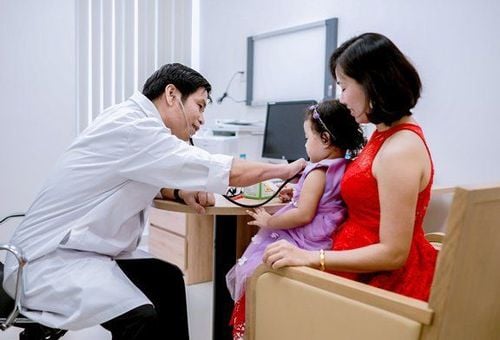
Please dial HOTLINE for more information or register for an appointment HERE. Download MyVinmec app to make appointments faster and to manage your bookings easily.






